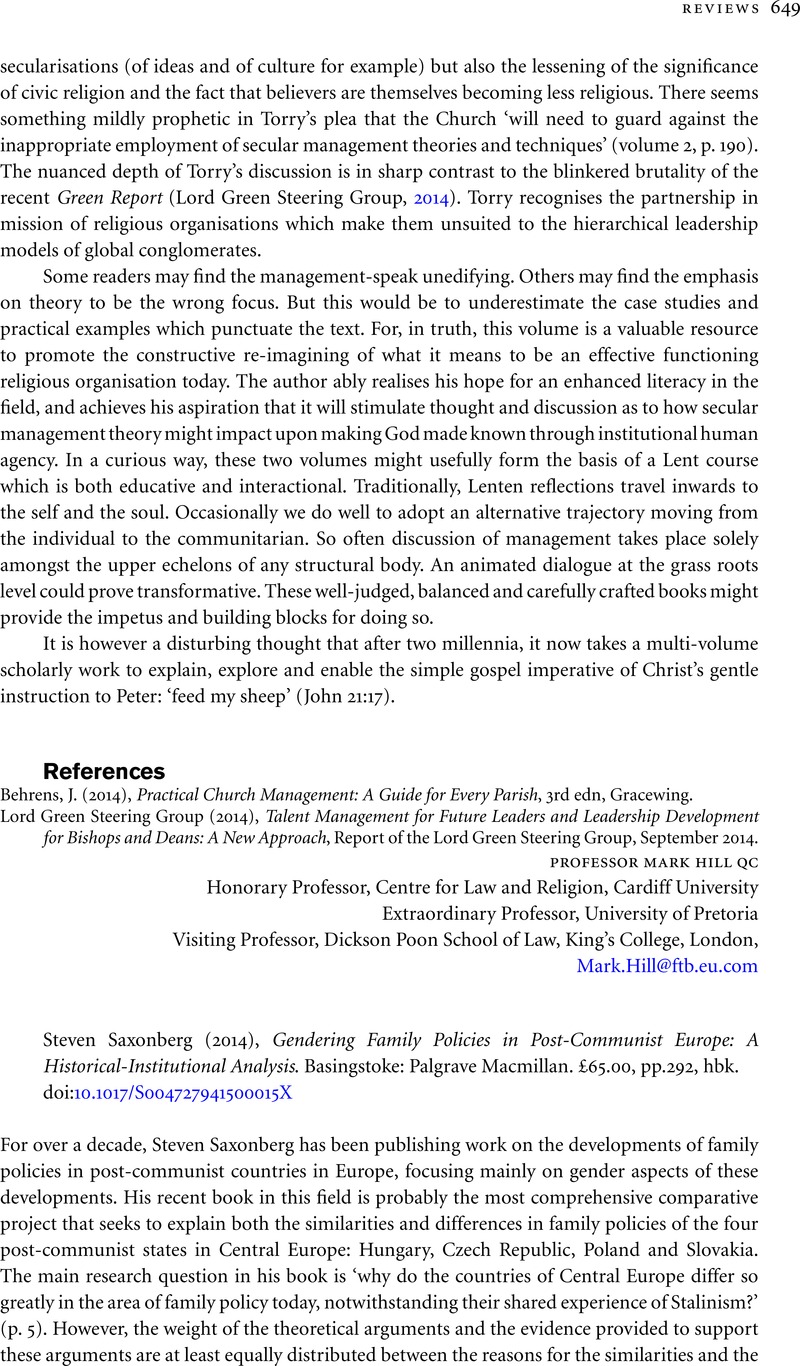No CrossRef data available.
Article contents
Steven Saxonberg (2014), Gendering Family Policies in Post-Communist Europe: A Historical-Institutional Analysis. Basingstoke: Palgrave Macmillan. £65.00, pp.292, hbk.
Review products
Steven Saxonberg (2014), Gendering Family Policies in Post-Communist Europe: A Historical-Institutional Analysis. Basingstoke: Palgrave Macmillan. £65.00, pp.292, hbk.
Published online by Cambridge University Press: 24 April 2015
Abstract
An abstract is not available for this content so a preview has been provided. Please use the Get access link above for information on how to access this content.

- Type
- Book Review
- Information
- Copyright
- Copyright © Cambridge University Press 2015
References
Pierson, P. (2000), ‘Increasing returns, path dependence, and the study of politics’, American Political Science Review, 94: 1, 251‒67.CrossRefGoogle Scholar
Rothstein, B. (1988), ‘Aktör-struktur ansatsen: Ett metodisk dilemma’, Statsvetenskapliga tidskrift, 19: 1, 27‒40.Google Scholar
Saxonberg, S. (2013), ‘From defamilialization to degenderization: toward a new welfare typology’, Social Policy and Administration, 47: 1, 26‒49.CrossRefGoogle Scholar


